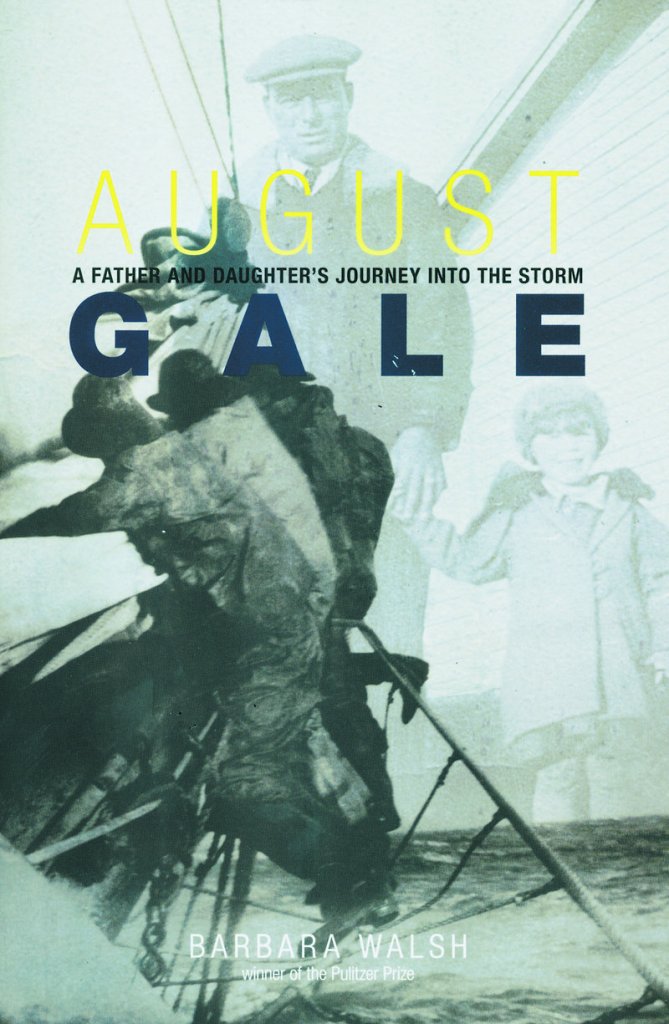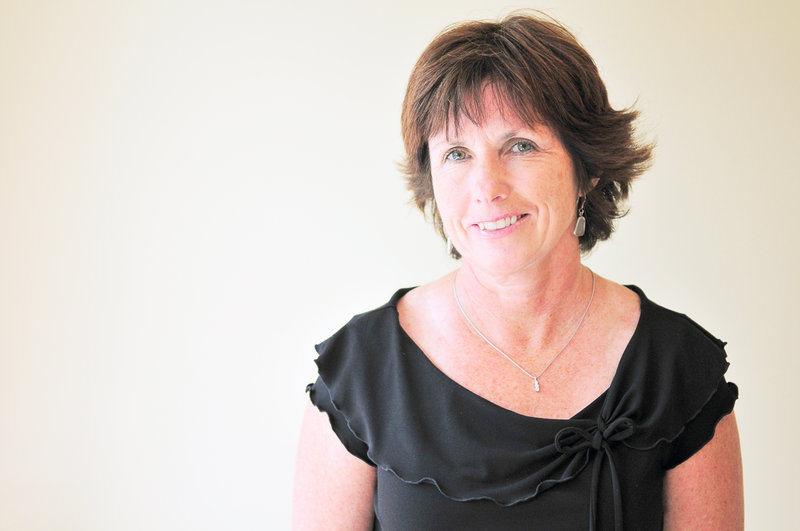Barbara Walsh said that after watching the movie “The Perfect Storm” — based on a book about a doomed fishing boat out of Massachusetts — she began thinking she might want to write that type of story.
But she wasn’t sure why.
Walsh had worked for years as a journalist, including at The Portland Press Herald/Maine Sunday Telegram, and won a Pulitzer Prize. But she didn’t remember coming across any specific fishing boat tragedy stories that might make good books.
“Something inside me said, ‘I can do this.’ I’ve always connected with the water, I’ve just been drawn to it,” said Walsh, of Winthrop. “My dad was visiting, and I told him I wanted to write something like (‘The Perfect Storm’). And he said, ‘You have a story like that in your family.’ “
Walsh listened to the story — two stories, really. One was about her father’s family in Newfoundland in the 1930s. Several were fishermen who lost their lives in a violent 1935 hurricane.
The other story was about Walsh’s grandfather, who had abandoned her father and grandmother, and about how researching the 1935 fishing tragedy helped her father reconnect with his past.
The result is Walsh’s book, “August Gale: A Father and Daughter’s Journey into the Storm.”
Q: What exactly did your father tell you that convinced you to pursue a book?
A: He told me this story, which he hadn’t told anyone in 40 years, about my great uncle in Marystown (Newfoundland). My great-uncle Paddy Walsh was a captain, and he was out in the storm — they called them gales — on his schooner. It was just violent and vicious, and came with no warning. So many relatives of his were out in that storm. Forty Newfoundland fishermen were killed in this one storm. It devastated the town.
The other piece of the story was Paddy’s brother Ambrose, my dad’s father. By 1935, he had immigrated to New York. Every relative of his was out in that storm.
I told my dad it sounded like an amazing story and maybe we could contact some of our relatives, and my dad said maybe we could. I had thought, until I was 18, that Ambrose had died. He abandoned my nana twice, and she always said he was dead.
But when we started looking at this story, my dad said we’d try to get in touch with his (Ambrose’s) family. So as we researched this story, I was learning about my grandfather too.
Q: What was it like for you to travel to Newfoundland and find relatives you had never met?
A: We (Walsh and her father) went to Marystown, where the fishermen were from, and they were all so welcoming. They’re very Irish. The first thing they say is, “Welcome home,” even though we’re not from there. To them, it’s your home because your ancestors came from there. They couldn’t do enough for us.
I was running around trying to interview as many sons and daughters of fishermen as I could, and suddenly we’re surrounded by family we had no idea about.
Q: What sort of things did you learn about the fishermen?
A: Paddy Walsh was a legendary fisherman and not afraid of anything on land or sea. The captains in that area, all Catholic, would bring Ash Wednesday palm fronds and holy water and holy medals on board with them, and if the sea grew rough, they might throw holy water into the sea to calm the waters. Some captains would stand on the bow and make the sign of the cross.
But my great uncle Paddy would climb the mast and shout out to the heavens, “I’m not afraid of you.”
Q: What do you know about Paddy Walsh during the storm?
A: Another captain who was racing toward shore had seen him, and warned him about the storm. Paddy said, “I know, but I have a stray dory out there.” He had his 12- and 14-year-old sons out there with him. They fished in dories, with hand nets. They’d row a mile and a half out.
Q: In the book, do the stories of the storm and the story of you finding out about your grandfather intersect?
A: I started with two different stories in two different periods. Then the theme became clear to me: There were 42 children who lost their fathers (in the storm), so they all had this incredible loss. Just like my father, who lost his dad too. What’s worse? To lose your father to the sea, or to the poor choices he made? So the themes are really loss and forgiveness and redemption.
Staff Writer Ray Routhier can be contacted at 791-6454 or at:
rrouthier@pressherald.com
Send questions/comments to the editors.





Success. Please wait for the page to reload. If the page does not reload within 5 seconds, please refresh the page.
Enter your email and password to access comments.
Hi, to comment on stories you must . This profile is in addition to your subscription and website login.
Already have a commenting profile? .
Invalid username/password.
Please check your email to confirm and complete your registration.
Only subscribers are eligible to post comments. Please subscribe or login first for digital access. Here’s why.
Use the form below to reset your password. When you've submitted your account email, we will send an email with a reset code.